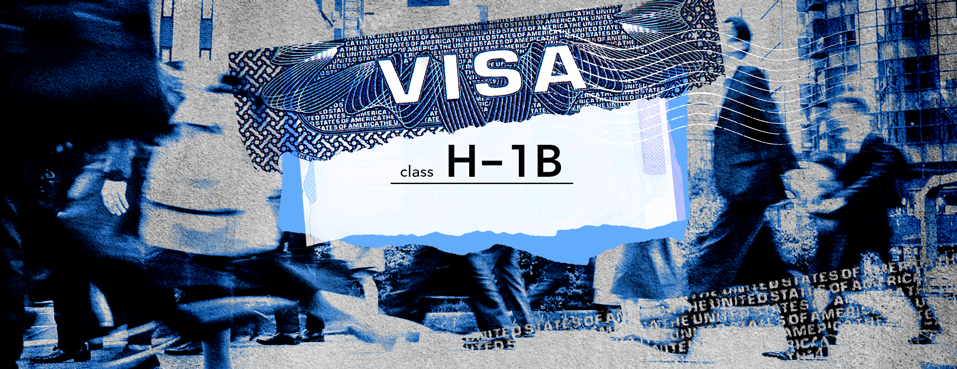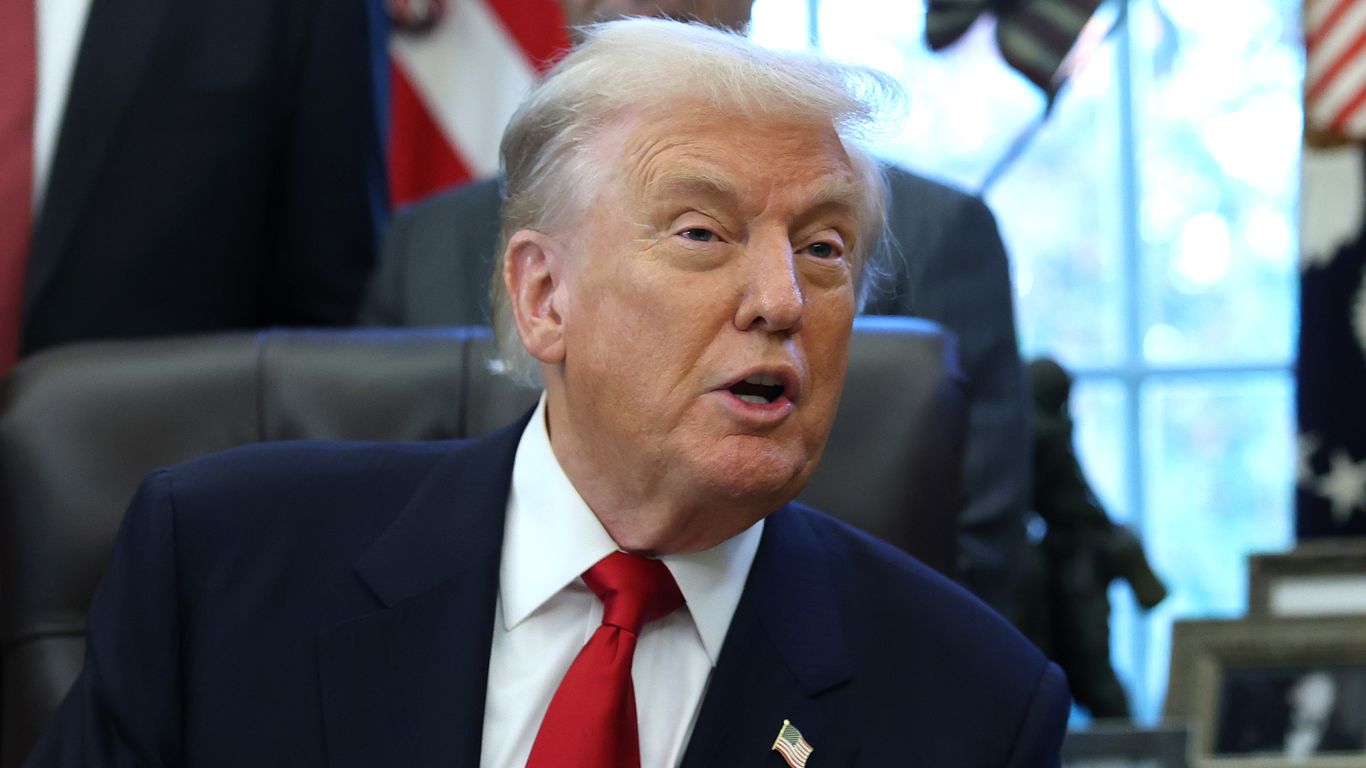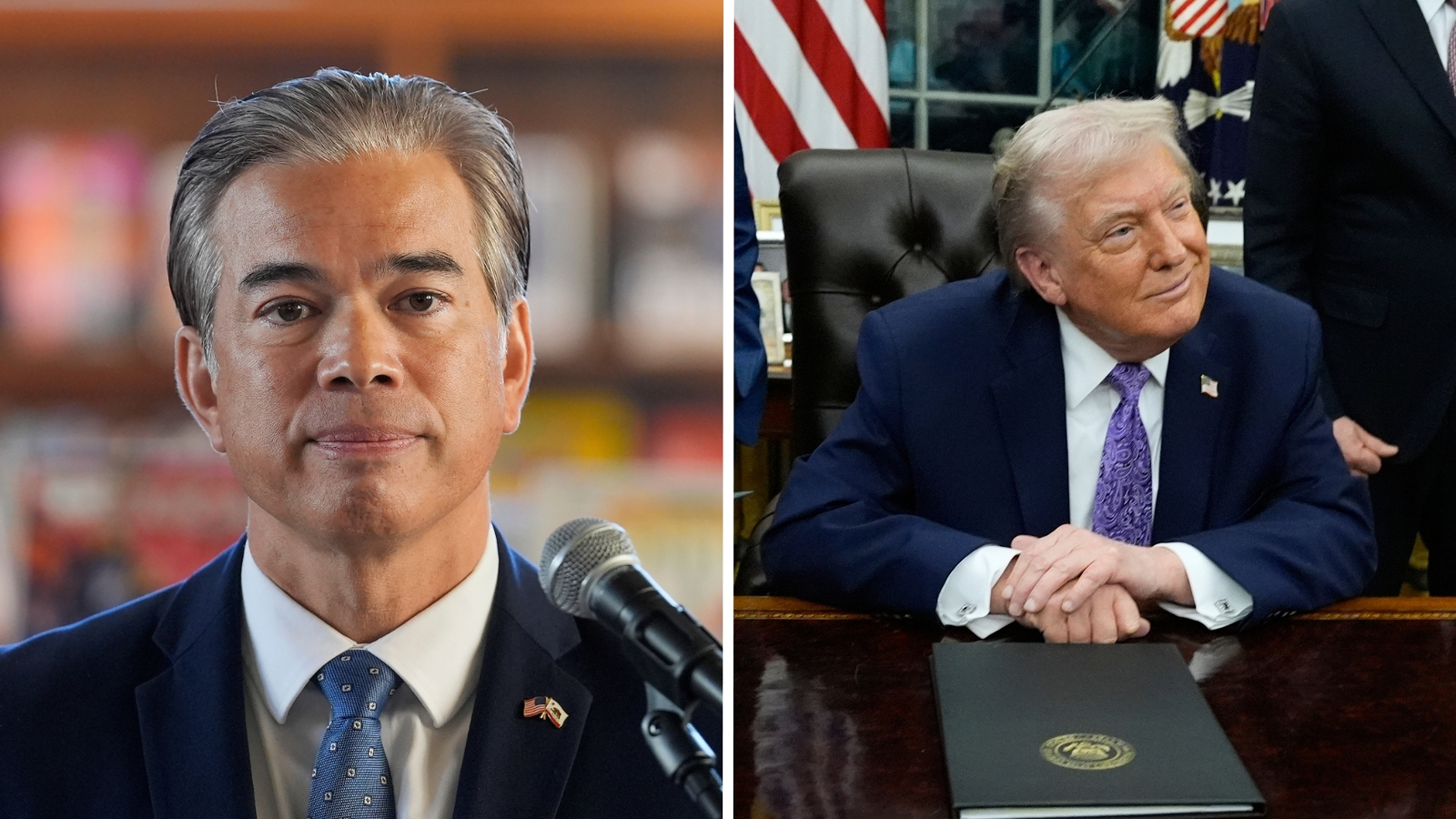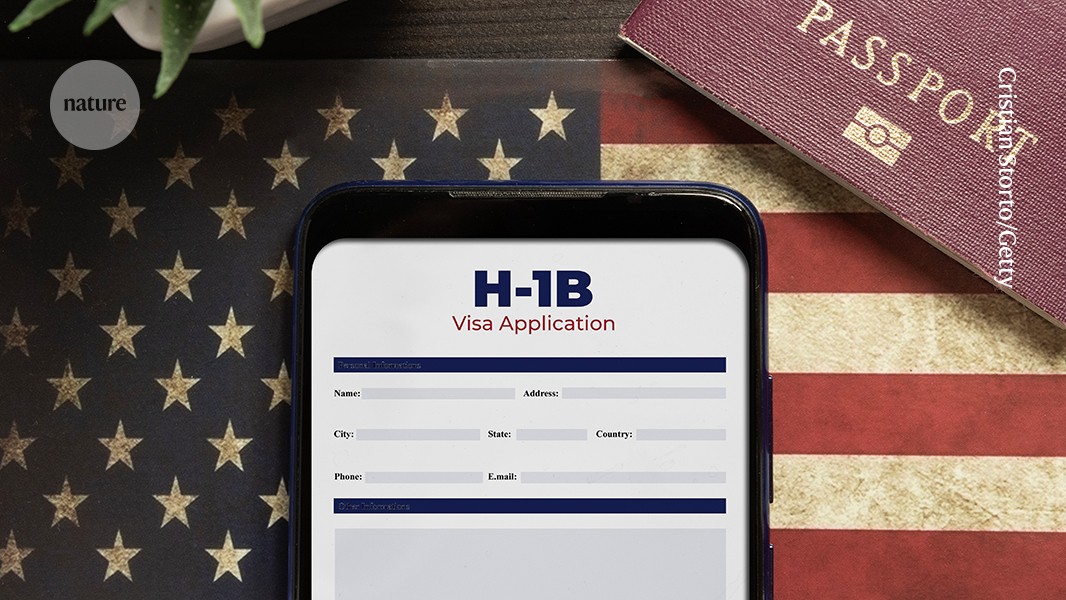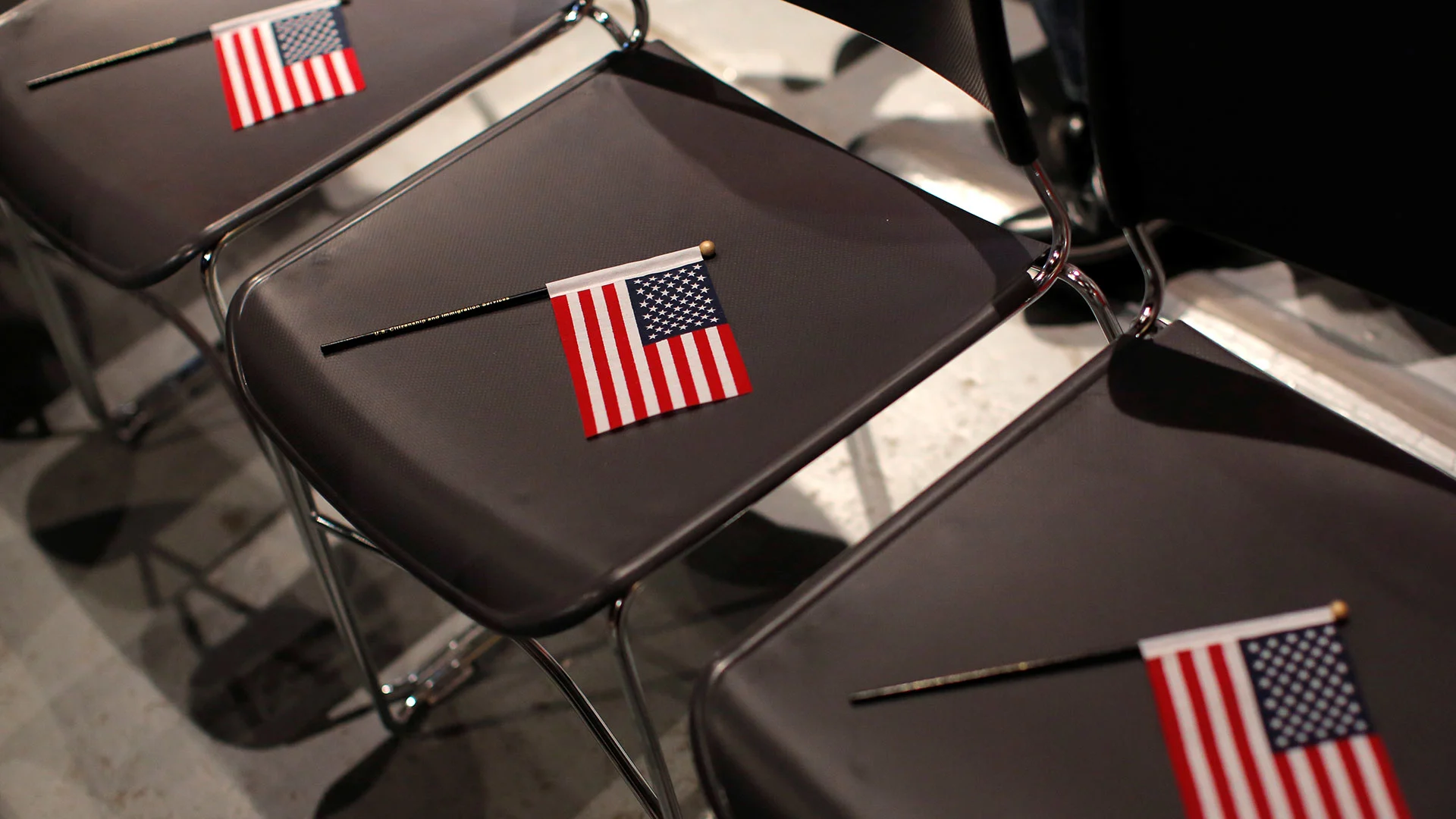#h-1b-visas
#h-1b-visas
[ follow ]
#immigration-policy #tech-industry #visa-fees #immigration #us-immigration-policy #lawsuit #tech-startups
Higher education
fromInside Higher Ed | Higher Education News, Events and Jobs
5 days agoFlorida Now Accepting Public Comment on H-1B Visa Hiring Ban
Florida's Board of Governors committee advanced a proposal to ban hiring new H-1B visa workers at public universities pending public comment and full-board vote.
Higher education
fromInside Higher Ed | Higher Education News, Events and Jobs
5 days agoFaculty Warn Against State Bans on H-1B Visas
State and federal actions—including a $100,000 H-1B fee and state visa freezes—threaten tens of thousands of university hires and could undermine research and academic freedom.
fromInside Higher Ed | Higher Education News, Events and Jobs
6 days agoTexas Pauses Use of H-1B Visas at State Universities
Texas governor Greg Abbott, a Republican, ordered all state colleges and universities to freeze their applications for new H-1B visas, The Texas Tribune reported. The pause, announced Tuesday afternoon, will last until May 31, 2027, though some institutions may be able to proceed if granted written permission by the Texas Workforce Commission. "State government must lead by example and ensure that employment opportunities-particularly those funded with taxpayer dollars-are filled by Texans first," Abbott told the Tribune.
US politics
fromBusiness Insider
1 week agoTexas governor orders freeze of new H-1B visa petitions at state agencies and public universities
Texas Gov. Greg Abbott is ordering state agencies and public universities in Texas to halt new petitions for H-1B visas. In a letter to Texas state agency heads on Tuesday, Abbott wrote that there had been "recent reports of abuse" in the program, which is designed to bring high-skilled foreign workers to the United States. "Texas state agencies and institutions of higher education collectively employ hundreds of thousands of Texans and have a significant role in shaping the State's labor market," Abbott wrote.
US politics
fromBusiness Insider
2 weeks agoHow much DoorDash paid tech workers in 2025, with some roles earning up to $426,000
The company's couriers, known internally as " dashers," are a common sight as they zip around the US delivering food, groceries, and other goods to customers. Now, DoorDash is investing in new tech, including autonomous vehicles, as it looks to the future. CEO Tony Xu said on an earnings call in November that DoorDash would invest hundreds of millions of dollars this year in key initiatives, including a global tech platform for all its brands and autonomous tech.
US politics
US politics
fromwww.mediaite.com
1 month agoChip Roy Touts Defeat of Nazis While Calling for Total Immigration Shutdown on Fox News: We Can Do It Again!'
A temporary pause on immigration is proposed to stop alleged visa and financial abuses and protect American interests by invoking past immigration freezes as precedent.
US politics
fromBusiness Insider
1 month agoI'm a business immigration lawyer. I'm telling my clients that if you have a valid visa stamp, return to the US now.
H-1B and other visa holders face embassy appointment delays and expanded vetting; avoid nonessential travel and return immediately if holding a valid visa stamp.
fromwww.esquire.com
1 month agoThanks to Trump's Extortionist Immigration Policies, Rural America Won't Have Enough Doctors
Brad Smith/ISI Photos//Getty Images Among its more obvious faultsand there is no bigger one than the vicious clowns the president has appointed to run itthe administration's toxic spitball approach to immigration is almost completely incoherent. This administration is deliberately oblivious to consequences anyway, be they intended or unintended. However, its policies on H-1B visas is doing real world damage in many different places.
US politics
US politics
fromwww.mediaite.com
2 months agoSteven Crowder Says Indian Immigrants Are No Threat to American Construction Workers Because They're a Physically Feeble People'
Steven Crowder claimed Indian immigrants are too physically feeble for construction work and repeatedly disparaged Indian people, culture, and immigration through derogatory remarks.
US politics
fromwww.mediaite.com
2 months agoI'm Gonna Welcome These People!' Trump Rebukes Right-Wing Critics of His Immigration Policy
Trump supports admitting high-skilled foreign workers on H-1B visas to staff advanced factories and train American workers, despite opposition from parts of his MAGA base.
fromwww.amny.com
2 months agoExpert analysis | Proposed weighted, wage-based H-1B lottery system to dramatically affect immigration | amNewYork
The U.S. Department of Homeland Security recently issued a notice of proposed rulemaking proposing a regulatory rule to change the process by which cap-subject H-1B status applicants are selected by U.S. Citizenship and Immigration Services for eligibility to file H-1B petitions in its annual lottery. This substantive change is part of the department's ongoing efforts to overhaul the H-1B system, including a $100,000 application fee.
US politics
fromwww.mercurynews.com
2 months agoYou don't have certain talents': Trump defends H-1B visas as needed despite moves to raise costs
Ingraham argued that visas would make it harder for Trump to achieve his goal of raising wages for US workers. You also do have to bring in talent, Trump countered. When Ingraham said the US already had plenty of talented people here, Trump responded no. You don't have certain talents. And you have to, people have to learn. You can't take people off, like an unemployment line, and say, I'm going to put you into a factory. We're going to make missiles,' he said.
US politics
fromwww.mediaite.com
2 months agoScott Jennings Defends Trump's Disastrous Fox News Interview, Insists Importing Workers Makes America Stronger'
Defending Trump's remarks during a panel debate on CNN NewsNight, Jennings insisted, He is supported by a great many people who see the value in highly specialized, talented people being able to come here. Host Abby Phillip replied, He's not really saying clearly what the policy ought to be, he's just saying we don't have talented people in the United States to do these jobs, which is not true.
US politics
US politics
fromwww.mediaite.com
2 months agoWhat the F*ck Is This?' Trump Supporters Rip President For Saying There Aren't Enough Talented People in America
President Trump's claim that the United States lacks sufficient talented people sparked swift criticism from his own supporters and Republican figures on social media.
Miscellaneous
fromComputerWeekly.com
2 months agoUS tariff on skilled workers could create an inflection point in the war for AI talent | Computer Weekly
Raising US H-1B visa fees to $100,000 will shift global AI and tech talent toward other countries, creating opportunity for the UK to attract workers.
fromwww.theguardian.com
3 months agoDeSantis urges Florida universities to stop hiring foreign visa workers
Florida governor, Ron DeSantis, is urging the state's universities to stop hiring international employees through the H-1B visa program. DeSantis said he wants the Florida board of governors to pull the plug on the practice. Nearly 400 foreign nationals are currently employed at Florida's public universities under the H-1B visa program, reported the Orlando Sentinel. Universities across the country are importing foreign workers on H-1B visas instead of hiring Americans who are qualified and available to do the job, said DeSantis in a statement.
US politics
fromBusiness Insider
3 months agoUS Chamber of Commerce sues Trump administration over $100,000 H-1B visa fee
The lawsuit said the fee, which President Donald Trump put in place with an executive order last month, was "unlawful" and that it would harm American businesses. "The United States is unique in its ability to attract the brightest talent from across the globe. For more than 70 years, what is now known as the H-1B visa program has enabled the United States to harness this magnetic draw," the lawsuit said, adding that as a result of the new fee businesses would have to "dramatically increase their labor costs or hire fewer highly skilled employees for whom domestic replacements are not readily available."
US politics
fromBusiness Insider
3 months agoDisney salary data reveals software engineers can make over $230,000
Disney isn't just one of the world's best-known companies and most iconic brands - it's also a dream job for many. The Mouse House has hundreds of thousands of employees across its streaming division, movie studios, theme parks, and other subsidiaries like TV networks ESPN and ABC. A top Disney priority under CEO Bob Iger is strengthening its streaming business by combining Disney+ and Hulu, investing in content, and increasing prices.
Business
US politics
fromBusiness Insider
4 months agoAs the US tightens restrictions on foreign workers, the rest of the world scrambles to lure top talent
Governments worldwide are competing to attract high-skilled foreign workers displaced by U.S. immigration and visa policy changes, offering incentives to lure tech and research talent.
fromBusiness Insider
4 months agoUS lawmakers have questions for Big Tech and others on H-1B hiring practices
Two US senators have questions for Big Tech and other top companies over their use of H-1B visas amid the Trump administration's push to slow down foreign worker hiring practices. In letters sent to 10 companies on Wednesday, including Amazon, Apple, Deloitte, and JPMorgan Chase, Senate Judiciary Committee Chairman Chuck Grassley and ranking member Sen. Dick Durbin said they were concerned about the use of H-1B visa workers while the tech sector experiences a "high unemployment rate."
US politics
fromBusiness Insider
4 months agoTrump's $100,000 visa fee threatens Wall Street's pipeline of junior bankers and tech talent
President Donald Trump's new H-1B visa policy may hit Big Tech the hardest, but Wall Street is well within the blast zone. Big banks like JPMorgan, Goldman Sachs, and Citi have long used these work visas to hire a range of highly skilled overseas workers, from junior bankers to technologists and even risk managers and traders. Trump's late Friday executive order, which raised the application fee to $100,000 each, is expected to upend this hiring process in a way that could
US politics
fromwww.theguardian.com
4 months agoTariffs on talent? Trumps's visa fees threaten tech's most prized employees
Donald Trump signed a proclamation on Friday that would impose an annual $100,000 fee on H-1B visa applications, dealing a potentially major blow to the US tech industry, which relies more than any other sector of the US economy on immigrants who hold these visas. Trump's threat to crack down on H-1B visas has become a major flashpoint with the tech industry.
US politics
US politics
fromFortune
4 months agoTrump's $100K visa move 'threw a lot of people, including us,' Cathie Wood says. She's still wildly optimistic about the American economy | Fortune
The high H-1B fee functions as a temporary, aggressive U.S. negotiating tactic aimed at India and is unlikely to block long-term attraction of global tech talent.
US politics
fromFortune
4 months agoElon Musk once vowed to 'go to war' for H-1Bs. Now he's silent on Trump's $100K fee-and smiling beside him at Charlie Kirk's funeral | Fortune
Elon Musk publicly defended the H-1B visa program but has gone quiet while President Trump implements a $100,000 fee on new H-1B applications.
fromFast Company
4 months agoTrump's steep new fees on H-1B visas are causing U.S. tech shares to drop
Analysts said the impact should be moderate, given that the fees apply only to new applications, but warned that a constrained supply of skilled workers in the U.S. may push wages higher and squeeze margins. Companies including Microsoft, Amazon, Alphabet and Goldman Sachs were among those that sent urgent emails to their employees with travel advisories.
US politics
[ Load more ]
